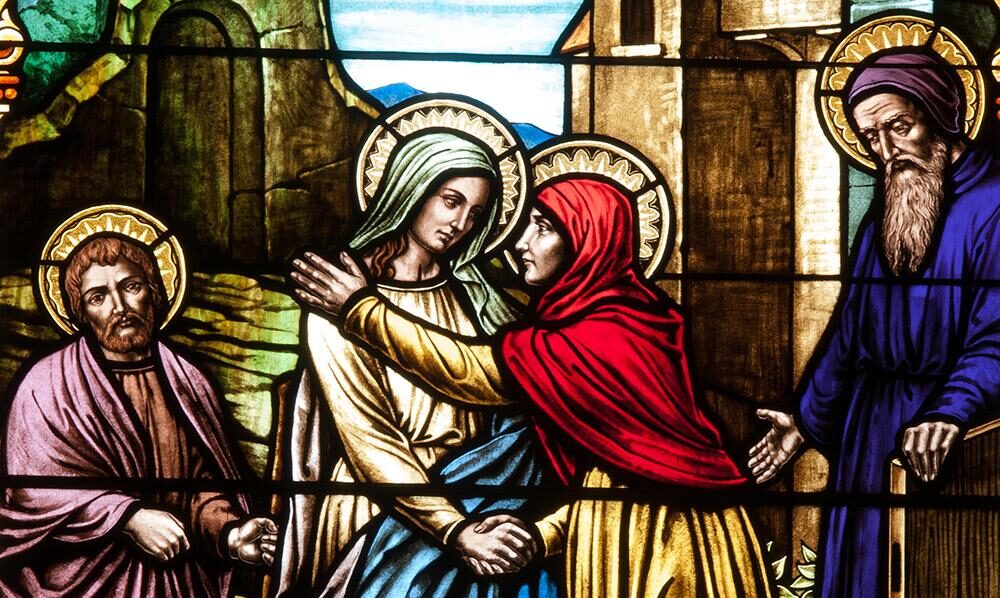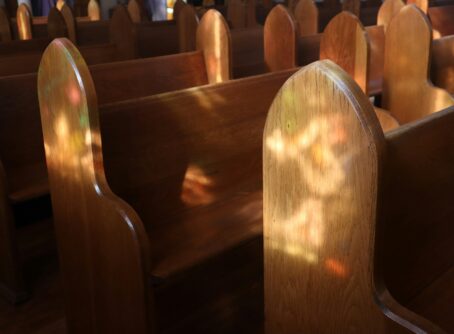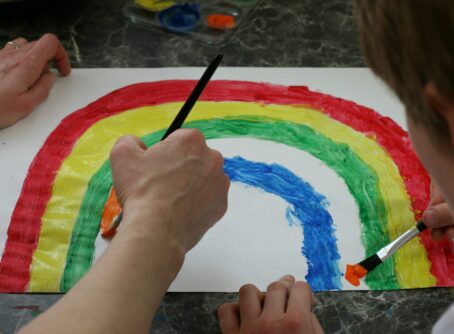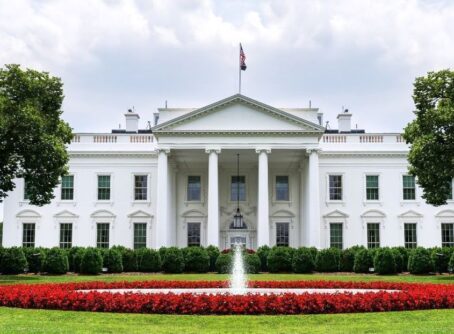
Mary, the mother of Jesus, has many names. Although how we celebrate Mary as Christians has many distinct and even divisive theological dimensions depending upon the doctrinal differences within and between Protestantism and Catholicism, there are some shared fundamentals. In Luke 1:46-55, Mary’s Song, or the Magnificat, expresses Mary’s affirmation that she will, indeed, become the mother of Christ: “My soul glorifies the Lord, and my spirit rejoices in God my Savior, for he has been mindful of the humble state of his servant. From now on, all generations will call me blessed, for the Mighty One has done great things for me—holy is his name.”
Mary’s ‘yes’ to God is one of the most transformational acts of human and religious freedom we see in the Bible. Her acceptance to bear the Christ child is not only a profound act of faith but also a profound exercise of her freedom to choose and embrace her divine vocation. Mary’s Song reminds us not only why religious freedom is foundational to the full unfolding of human dignity but also illuminates what freedom is for: to magnify our Lord. Her declaration, “My soul glorifies the Lord,” epitomizes the ultimate purpose of religious freedom—to allow individuals and communities to live out their faith openly and fully, expressing their devotion to God through their actions and lives.
As Dignitas Infinita tells us of religious freedom: “Such freedom of thought and conscience, both individual and communal, is based on the recognition of human dignity as known through the revealed Word of God and by reason itself.” This insight underscores the importance of religious freedom as a cornerstone for both individual dignity and communal integrity, emphasizing that such freedom must be protected and upheld within society.
Moreover, the Magnificat reveals the broader societal implications of religious freedom. Mary’s proclamation of God’s justice—”He has brought down rulers from their thrones but has lifted up the humble”—speaks to the transformative power of faith when freely expressed. This highlights that religious freedom is not just about personal belief but about enabling communities to practice their faith collectively, contributing to a more just and equitable society. When individuals and communities are free to express their faith, they can challenge injustices and advocate for the marginalized, embodying the justice that Mary sings about.
In contemporary contexts, Mary’s example and the Magnificat inspire believers to advocate for religious freedom not only as a personal right but as a communal and institutional good that benefits all of society. It encourages us to cultivate environments where faith can be freely practiced and where individuals and the institutions they form can respond to their divine callings. This collective expression of faith strengthens civil society, allowing diverse voices to promote justice and the common good, ensuring that religious freedom is a shared benefit that uplifts everyone.
Religious Freedom to Magnify the Lord in Education
The significance of religious freedom for religious individuals and the organizations they form is vividly illustrated by recent cases in Colorado that bear the name of Mary. On June 4th, in St. Mary Catholic Parish v. Roy, a federal court in Colorado found that the State of Colorado broke the law by not allowing Catholic preschools to participate in its new universal preschool (UPK) program. This exclusion was due to the schools considering religious beliefs when making enrollment decisions. The case, St. Mary Catholic Parish v. Roy, was brought by two Catholic preschools and a Catholic family who asked the court to require the Department of Early Childhood to include them in the UPK program.
Colorado’s Department of Early Childhood had prevented families with children in Catholic preschools from joining the state’s preschool-funding initiative. The Department accomplished this by setting criteria for its so-called “universal” preschool program that automatically disqualified numerous religious preschools, including those run by Catholic institutions. As Becket states, “As the word ‘universal’ would seem to indicate, the Department repeatedly emphasized that this program was intended for all Colorado families. After the Department announced the creation of this program, families in Catholic schools across Colorado were eager to participate.”
Despite being supposedly “universal,” the actual exclusionary criteria mean that many faith-based preschools are left out, such that parents who opt for Catholic preschools face additional costs of approximately $600 per month, unlike those who select secular private preschools. In response, Catholic parents and preschools have taken legal action to challenge this exclusion based on religious grounds.
On August 16, 2023, Becket initiated a federal lawsuit against the State of Colorado to defend the rights of families who choose Catholic schools to access the State’s universal preschool program. From January 2-4, 2024, a federal judge in Denver conducted a bench trial where a Catholic family and two Catholic preschools presented their case to be included in the program. Because St. Mary’s and St. Bernadette’s Catholic preschools ask families to affirm their religious beliefs, the Department of Early Childhood denied families who wanted to send their children to these schools this option. On June 4, 2024, the court determined that Colorado had acted unlawfully by excluding these preschools from the UPK program due to their practice of considering religious affiliation in enrollment and operational decisions.
Nick Reaves, a lawyer at Becket, commented, “A Catholic school should not be punished for valuing its students’ religious education. Colorado rightly deserves this injunction, as it did in the previous case.”
In a comprehensive 101-page opinion, the court stated that Colorado’s attempt to exclude the schools overreached the appropriate boundaries of state power. According to the court, the State failed to provide a compelling purpose for leaving out these Catholic preschools based on their coreligionist family enrollment policies. This is the second ruling of its kind in the same number of years. In 2023, a different Colorado-based federal judge ruled in favor of another faith-based preschool facing similar exclusion.
Faith-Based Early Education Vital to Diverse Communities
The Archdiocese of Denver plays a pivotal role in supporting parents by providing quality Catholic education through its network of preschools. These schools not only focus on imparting developmentally appropriate schooling, but also emphasize the stories and teachings of the Catholic faith. Among the parishes offering such programs are St. Mary’s and St. Bernadette’s, both of which serve a diverse community of families in the Denver area.
St. Mary’s Parish, established in Littleton, Colorado in 1951, has been running a preschool program since 2006. The preschool is committed to inclusivity, offering services to children with disabilities, including those with Down syndrome and autism. Approximately 25% of the students at St. Mary’s Preschool benefit from tuition discounts or scholarships, highlighting the parish’s dedication to making education accessible to families from various economic backgrounds.
Similarly, St. Bernadette’s Parish in Lakewood, Colorado, founded in 1947, opened its parish school, now known as Wellspring Catholic Academy, in 1953. This institution serves a significant number of families with limited financial means, with 85% of the preschool students receiving free or reduced-price meals. In 2023 alone, families at St. Bernadette’s received over $250,000 in scholarships, reflecting the parish’s commitment to supporting its community.
According to Becket, “For years, both of these Catholic preschools have assisted parents with the religious and educational upbringing of their children by providing excellent intellectual, moral, and spiritual formation.”
Catholic education has long been a cornerstone of the Archdiocese of Denver, which has been operating schools in Colorado for over a century. The Archdiocese is the spiritual home to approximately 610,000 Catholics, spread across 148 parishes, stations, and mission parishes in northern Colorado. The network includes 36 preschools that collectively serve around 1,500 students each year, demonstrating the extensive reach and impact of the Archdiocese’s educational ministry.
Through these efforts, the Archdiocese of Denver ensures that children receive a whole-person education rooted in Catholic values, preparing them for future success while fostering a strong sense of community and faith.
Any party involved in this case may choose to appeal the decision. If an appeal is made, the case will be taken to the U.S. Court of Appeals for the Tenth Circuit, based in Denver. Yet, as Becket states: “The Supreme Court has three times in the past six years affirmed that the government cannot exclude some people from public benefits because of their religious beliefs or exercise. Families should be free to choose to send their kids to a Catholic preschool without forfeiting a public benefit—especially one the government has described as ‘universal.’”
Mary’s ‘yes’ to God and her Magnificat are profound affirmations of religious freedom, highlighting its foundational role in human dignity and its ultimate purpose in glorifying God. This biblical account calls us to uphold and advocate for religious freedom as essential to the flourishing of both individuals and communities, enabling all to live out their faith authentically and fully.
Chelsea Langston Bombino is a believer in sacred communities, a wife, and a mother. She serves as a program officer with the Fetzer Institute and a fellow with the Center for Public Justice.




